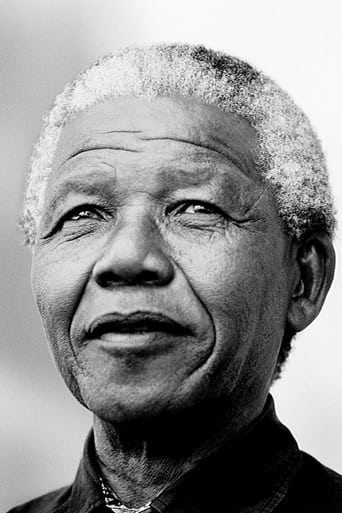Raetsonwe
Redundant and unnecessary.
Onlinewsma
Absolutely Brilliant!
Limerculer
A waste of 90 minutes of my life
Voxitype
Good films always raise compelling questions, whether the format is fiction or documentary fact.
runamokprods
Commodities entrepreneur Jean-Yves Ollivier recounts his behind-the-scenes efforts to help broker the beginning of the end to apartheid in South Africa. While most attention in that historic transition has rightfully gone to Nelson Mandela, the ANC, and those fighting for freedom on the ground, the story of this clever chess-player using his Machiavellian business skills to gently coax together people and nations who weren't even speaking is a fascinating look at how complex, and not always 100% pure, the impulses behind change can be. Ollivier seems no fan of apartheid morally, but freely admits his first impetus for change was realizing it wasn't a sustainable model for a businessman like him trading with South Africa. So he tried to usher in the end of the old order with minimal violence and social disruption. Occasionally we get the sense we might be hearing a bit of a self-serving version of the story – there's not a lot of hard questioning of Ollivier's version of events. But whatever the details, there's no question this unlikely hero had a serious hand in bring to a close one of the most shameful regimes of the 20th century. On 2nd viewing it only grew in power, and emotion -- and my mild reservations abated. Whatever it's flaws this is a very powerful document of one person making a huge difference in the world, and not caring if he got the credit.
l_rawjalaurence
PLOT FOR PEACE profiles Jean-Yves Olivier, aka "Monsieur Jacques," a French business person who helped bring about peace in Africa during the Eighties as well as hastening the move towards the end of apartheid in South Africa in the mid-Nineties. Growing up in Algeria at the end of French colonial rule, Olivier understood the importance of negotiation rather than war as a means to solve disputes, if only to ensure the survival of different peoples; this was especially important in South Africa if the white community was going to survive in the post-apartheid era. Although not a politician, Olivier's greatest gift was the ability to be able to talk to the leaders of different political factions in Africa - in Angola, Mozambique, Namibia as well as South Africa - and persuade them to enter into negotiations, in which they would all achieve their aims, but would also work towards peace without losing face. Olivier acts as our narrator, talking direct to camera, with the help of reminiscences from many of the major players involved, including Winnie Mandela, and former South African Foreign Minister Pik Botha. To be honest, the plot does get a little complicated at times - it is often difficult to identify all the leaders and the factions they represent. But Olivier comes across as someone prepared to go to extraordinary lengths to secure peace: many of his trips criss-crossing the African continent were undertaken at his own expense. With hindsight it is perhaps sad that no similar person took responsibility for trying to end long-standing conflicts in other parts of the world - for example in Israel and Palestine. Although they might not have succeeded, they would have at least deserved some credit for trying.




